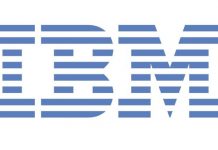San Francisco-based blockchain and IoT company Chronicled, Inc. has announced the completion of a technical pilot demonstrating a cryptographic method of anonymously transferring a Serialized Global Trade Item Number - or SGTIN. SGTINs identify individual items as they move through multi-stage supply chains, which can involve multiple custodians and geographic locations.
Using an applied cryptographic verification model known as Zero Knowledge Succinct Non-Interactive Argument of Knowledge - zk-SNARK - developed by University researchers at UC Berkeley and MIT, the pilot allows multiple independent parties to verify an object’s identity and provenance without directly interacting with one another or a centralized database. This enables secure and anonymous transfer of possession and/or ownership of SGTINs within multi-party supply chains.
In addition to removing trust barriers and multi-party friction and bottlenecks, Chronicled’s technical pilot is a step towards full prevention and elimination of the entry of counterfeit products and components into the supply chain. Within the cryptographic framework of the pilot, an SGTIN can be in the possession of only a single trading partner at any given time. Any duplication will alert the network to the existence and location of a counterfeit asset.
The initial market vertical that Chronicled aims to improve - in partnership with The LinkLab - is the pharmaceutical supply chain. An FDA regulatory regime called the Drug Supply Chain Security Act calls for full end-to-end track and trace of pharma products by 2023 on an interoperable platform. However, under conventional approaches, the pharmaceutical industry fears the leakage of sensitive business intelligence that could tip-off their trading and financing partners about purchasing patterns and business volumes.
Ryan Orr, Chronicled CEO, said: “Our team has been working hard on this key privacy issue, and as a result Chronicled is now the first to successfully demonstrate this cryptographically secure method of anonymous physical asset identity transfer. As an immediate next step, we plan to continue to work with industry partners to implement current supply chain workflows using this technology while optimizing for volume, aggregation, returns, recalls, and performance considerations.”
CTO Chronicled, Maurizio Greco remarked: “This is the first step in a longer-term plan to fundamentally improve the way assets move through supply chains by using blockchain technology to immutably track the provenance of any object with an SGTIN,”
Data written to the blockchain would be transparent and immutable and will not rely on central databases or human intermediaries. Because of this, the zk-SNARK methodology is not susceptible to human error or conventional hacking. The framework piloted by Chronicled prevents any leakage of company identity, shipment information, and transaction volumes and makes the usage of a blockchain ledger resistant to unwanted usage or analysis of data by an industry analyst or malicious third party. Associated smart contracts allow a regulator to fully and reliably audit the provenance of an asset after the fact, without the need for prior knowledge, continuous monitoring, or the need for trust in the various organizations operating within the supply chain.
Chronicled Engineer, Maksym Petkus stated: “In early August, Chronicled will host a clean-room session with three experts in the field of applied cryptography to verify the robustness of the technical method and publish independent assessments in a public forum,”
While the initial pilot is being implemented using a Parity client on Ethereum, it is compatible with other blockchain systems, including Quorum and Hyperledger, which Chronicled also supports. When fully implemented, the system is expected to represent a major step towards eliminating friction that exists under present regulatory and trade regimes, as data privacy is afforded while at the same time the record of custody and provenance is immutably and cryptographically secured. This solution to solving the competing requirements of full privacy, and also item level provenance when requested by a regulator, will represent a move toward digitalization, trust, and interoperability in global trade flows.
More broadly, the pilot lays the foundation for the implementation of secure, automated business practices on blockchain systems. Follow-on use cases might include IoT-based verification of physical custody of a physical shipment as a precursor to being able to transfer custody of an SGTIN to the next trading partner in the chain; or, immediate, secure fulfilment of contractual obligations, including, for example, automated payment upon delivery of a shipment.







